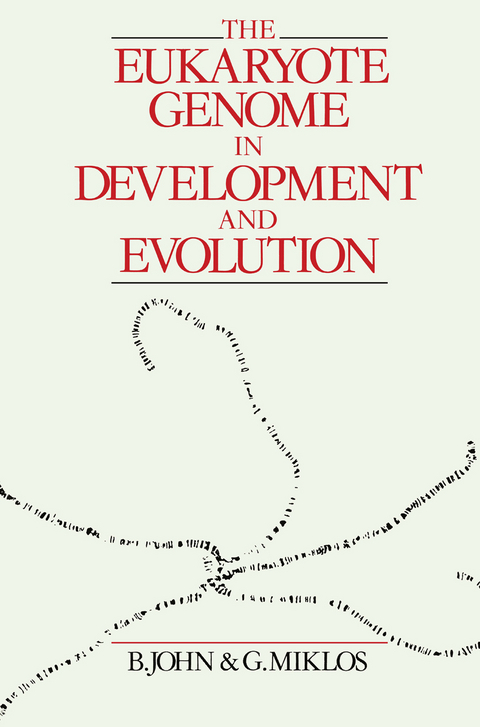
The Eukaryote Genome in Development and Evolution
Kluwer Academic Publishers (Verlag)
978-0-04-575033-7 (ISBN)
1 General Molecular Organization of Genomes.- 1.1 Dissecting genomes.- 1.2 DNA components of genomes.- 2 Developmental Activities of Genomes.- 2.1 From egg to adult.- 2.2 The genetic control of development in Drosophila melanogaster.- 2.3 General principles of development.- 2.4 Genome alterations during development.- 3 Coding Capacities of Genomes.- 3.1 Gene regulation in eukaryotes.- 3.2 Drosophila genomes.- 3.3 Comparative genome organization.- 3.4 Gene dosage relationships.- 3.5 The developmental dilemma.- 4 Genome Change and Evolutionary Change.- 4.1 The basis of evolutionary change.- 4.2 Stability and change in the genome.- 4.3 Nucleotype and genotype.- 4.4 Genome change and speciation.- 4.5 Changes in genome size.- 4.6 Summary statement.- 5 The Unsolved Problem — The Origin of Morphological Novelty.- 5.1 Timing adjustments.- 5.2 Binary switch mechanisms.- 5.3 Cell interactions.- 5.4 Cell position.- 5.5 The evolutionary dilemma.- 6 Coda.- 6.1 Facts and conclusions.- 6.2 Future prospects.- 6.3 Final statement.- References.
| Zusatzinfo | XVIII, 416 p. |
|---|---|
| Verlagsort | Dordrecht |
| Sprache | englisch |
| Maße | 155 x 235 mm |
| Themenwelt | Naturwissenschaften ► Biologie ► Biochemie |
| Naturwissenschaften ► Biologie ► Evolution | |
| Naturwissenschaften ► Biologie ► Genetik / Molekularbiologie | |
| Sozialwissenschaften | |
| ISBN-10 | 0-04-575033-5 / 0045750335 |
| ISBN-13 | 978-0-04-575033-7 / 9780045750337 |
| Zustand | Neuware |
| Haben Sie eine Frage zum Produkt? |
aus dem Bereich


